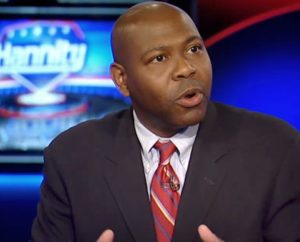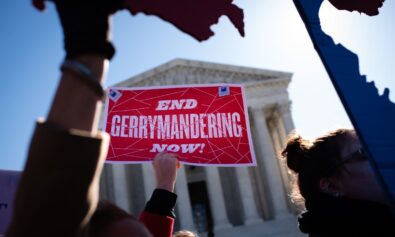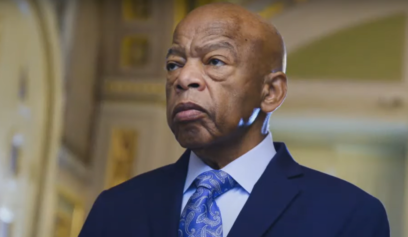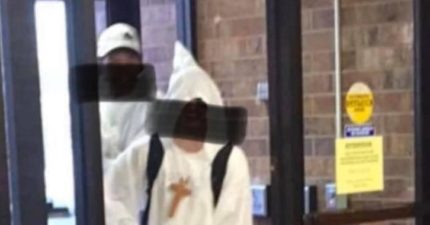For Blacks in America, the age before the Civil Rights era was a painful, dangerous period, filled with turmoil, hostility and fear. White supremacy was on display in every facet of life, with the Ku Klux Klan the symbol of the maddening, oppressive time.
Many Blacks lived in poverty, disallowed to earn a livable wage by white landowners committed to keeping them in a state not that different from slavery.
That time was marked by lynchings—white people stringing up Black people, many times for sport or for trumped up charges, and hanging them from trees or literally burning them at the stake.
From 1877 to 1950, 3,959 Blacks were lynched in the United States—an astonishing truth recently revealed in a study conducted by the Equal Justice Initiative. Those responsible for these murders most times were never brought to justice. In fact, many times it was a festive occasion for whites, who would gather around in a sort of town square and cheer as life was taken from a human being.
Those facts are important to raise now because a Black columnist at a well-respected newspaper wrote this week that “Black progress was occurring at a time when whites were lynching Blacks.”
Most people are still waiting for the punch line, the indicator that Jason Riley of the Wall Street Journal could not have been serious in using the atrocity of lynching as a barometer. It is an outright affront to the thousands of Black people whose lives were taken and disgraced in such a fashion.
Talk about Black on Black crime. . .
It’s almost criminal to touch lynching unless you are focusing on the unmitigated cruelty and evilness of it. For Riley to evoke that imagery to a people that remain devastated from its impact rings cruel and unusual.
“History shows,” Riley wrote in a column about the Oklahoma fraternity racist video, “that faster Black progress was occurring at a time when whites were still lynching blacks, not merely singing about it. Liberals want Blacks to ignore the lessons of this pre-Civil Rights era, which threaten the current relevance of groups like the NAACP and call into question the Democratic Party’s belief that there is a federal solution to every Black problem.”
What history actually shows is excruciating, debilitating pain and suffering Black people endured. It’s a psychological pain and suffering pain and that, in many cases, has been passed from one generation to the next.
Surely, there was another, more sensitive way to make his point without offended a race. His race.
Today’s concerns of Riley and Black people in America are real and disconcerting. Inequalities in wages, housing and most everything else exist at a time when it should not. Crime in Black neighborhoods is staggering and demoralizing. Many prisons are filled with Black men and women, although they make up just 16 percent of the American population. A Black man was found hanged in Mississippi this week. A college student was beaten at the University of Virginia by a campus police officer this week. Someone plastered “exclusively for white people” signs on businesses in Austin, Texas this week. And of course we know every week the days are littered with racist acts against Blacks, too.
Black people are marching again, in 2015, because unarmed Black men are being shot by law enforcement on America’s streets. The infant mortality rate for Black kids is higher than those of whites. The justice system sentences Black people to longer prison terms than whites who commit the same crime. Institutional racism persists. And on and on. . . No one considers this an ideal time–and many might even agree with Riley on some levels on some points.
Still, taking all that into account, the idea that he would throw lynching into the argument was preposterous at least, irresponsible at worst.
In the Equal Justice Initiative report on lynchings said: “The death penalty’s roots are sunk deep in the legacy of lynching is evidenced by the fact that public executions to mollify the mob continued after the practice was legally banned,” the report states.
In addition to killing thousands, helping to marginalize Black people in the country’s political, economic, and social systems and fueling a massive migration out of the South, the EJI says “lynching—and other forms of racial terrorism—inflicted deep traumatic and psychological wounds on survivors, witnesses, family members, and the entire African-American community. Whites who participated in or witnessed gruesome lynchings and socialized their children in this culture of violence also were psychologically damaged. And state officials’ indifference to and complicity in lynchings created enduring national and institutional wounds that we have not yet confronted or begun to heal.”
Pretty deep.
Riley also took a pot shot at Black activists who may not be as effective as Martin Luther King, Malcolm X, Marcus Garvey, Stokley Carmichael, but remain in the trenches. Writing that they are elated that hate crimes occur because it generates business for them is below the belt and petty.
And it’s quite condescending and misses the point about the state of affairs. People march for a reason, for causes, and it pushes aside the crime against Blacks when you point a finger at the “leaders” trying to help.
Trying to help. . . exactly what saying Blacks would be better off when they were being lynched does not do.
* In the original version of this story, ABS misquoted the Wall Street Journal. ABS regrets the error.



